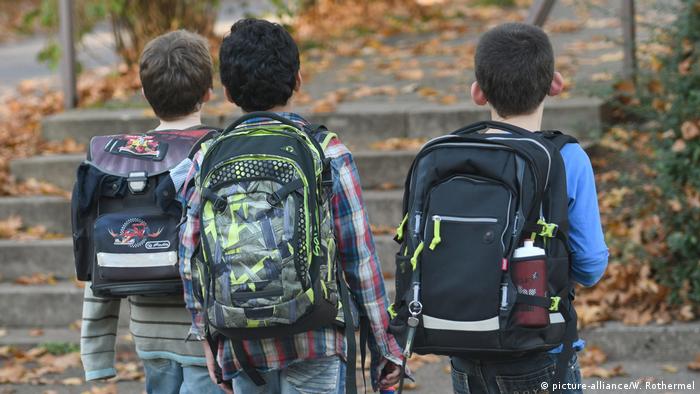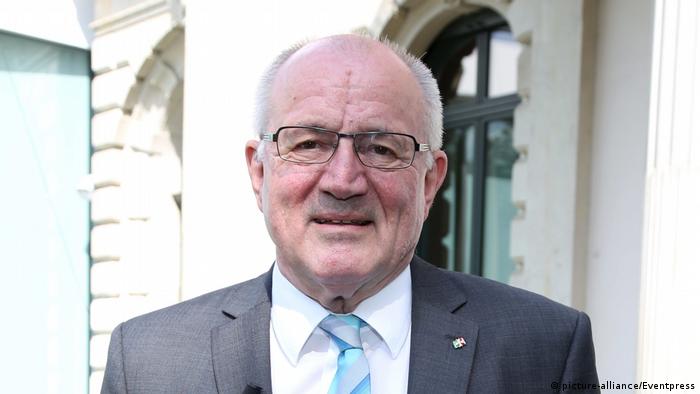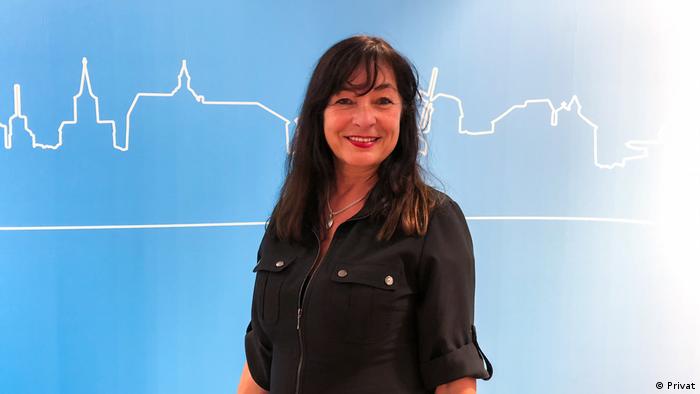Poor children in Germany have worse chances. This is the result of the current study, data report, by 2018. Martina Hermann-Biert explained in the interview-such as your Initiative, “Dormagen model” struggle against it.

Deutsche Welle: What is the “Dormagen model”?
Martina Hermann-Biert: We try to be preventive, and across the Board for all families in Dormagen. We make no differences, and try early on, kids poverty. Our program is accompanied, in the meantime, the children from birth up to entry into the profession. In the meantime, 700 people are at the Dormagen model and networked with each other: Doctors, teachers, educators, speech therapists, debt counsellors and 15 social workers here in the city. Each of these social workers in Dormagen, a district, and for years responsible.
Where did the idea for this project?
About 20 years ago, we thought that with a handful of social workers: We are committed, have good ideas and can do so much to offer to help, but they might need assistance, they rarely, because all the fear of child welfare. The people came often to us, if it was for the child is almost already too late. And the Tenor was that youth services can take away without any visible reason, other people’s children. We then created a concept that outsiders are taken on Board-and us scientific advice. Later, Heinz Hilgers, the mayor, was also President of the German child protection Federation, and still is today. And he supports our prevention ideas and has them.

Heinz Hilgers, President of the German child protection Federation, was from 2004 to 2009, the mayor of Dormagen
You then have the time to get started – and what makes it special: they accompany the families from the birth of your child.
Exactly. We visit all parents to bring a child into the world, all of you, no matter what nationality, no matter what profession. We do this across the Board, of course, only with the consent of the parents, this is not a compulsory measure. In 2006, we started to use it, so twelve years ago. The mayor has to fill out written to and the people are friendly and we are social workers to the families with a package full of gifts and information material, and have also offered amendments.
How have you managed that the families accept the Dormagen model immediately?
Just when we started all this, was kindled in Germany, there is a large debate on the protection of children, because at that time the body of two-year-old Kevin in Bremen in the freezer was found. And so the press was on us. I was then invited in all sorts of TV shows, the “Dormagen model”. The people here were very proud that their child welfare was once so famous. So it was the perfect time to start. When we started, called the people and said: ‘you have forgotten me!’
This is still the case today?
Yes, today, 96 percent of parents to take in Dormagen our offers. The first visit is always crucial, it is our foot in the door, our ticket. In three percent of the cases we are there already concrete assistance. Every tenth family reports in the first three years of the child and asks for support. We, as the youth welfare office to understand us with the model as a guest, this means we do not look under the beds and in the closets. Mutual trust is of course very important.
Now, Dormagen is a town with about 60,000 inhabitants. How does one as a project?
We have created at the beginning of an internal analysis: 13% of all children lived in Dormagen, Germany on the poverty line and were at a disadvantage. You do not have the same development opportunities in the education, health, in all areas. We need to support these children in public. And then we have promoted the two parts of the city in Dormagen, Germany, which were relevant, hackenbroich and Horrem. We have used, for example, a pediatrician with a half-time position and paid for it, has examined all of the children up to four years in these two parts of the city. Of course, with the consent of the parents and in the presence of the teachers, to find out what these children need. Many parents in the city of Lone parents who have multiple children, and the children’s doctors were in the center much too difficult to reach. Or we have also conducted special language support programmes in day-care centres. Today, the children are there in the language development above the average of the entire circular area.

“You have to take the parents as experts in their life-worlds seriously,” social pedagogue Martina Hermann-Biert
There are other data that show that the “Dormagen model” is a model of success?
Nationwide, one can see that the number of the taking into care of children rises under six years of age, so that children are taken from families because they are endangered. In Dormagen, which is now quite rare. We have Baby Clubs, and eight family centres. We are so well connected that all look at how you can help the families. As early and efficiently as possible. And then also financially for the local authorities: we have through our early help, for example, relatively fewer children in the homes and can save therefore money.
In your opinion, what are the basic requirements to start a model such as the one in Dormagen?
It is a Motor has to be there, people who want to, the management and the policies that make it possible. We have us in 2006, brought a political decision. That is, even if the mayor changes, is anchored to the prevention project politically, and can go further, so it is not dependent on any one Person. It takes time to install such a model. You need to constantly evaluate and improve. And you have to know that there is a lot of work. We have in our staff turnover and pay is also better than in other municipalities, because we find that the protection of children is one of the most responsible tasks ever. In return, we have a very great job satisfaction, because we see the results in the families. The employees who are retired say that they would like to continue to work.
The social pedagogue Martina Hermann-Biert directs in the town of Dormagen, the Department for youth, school, social Affairs and Housing and the initiator and main responsible for the “Dormagen model”.
The conversation with Oliver Pieper.